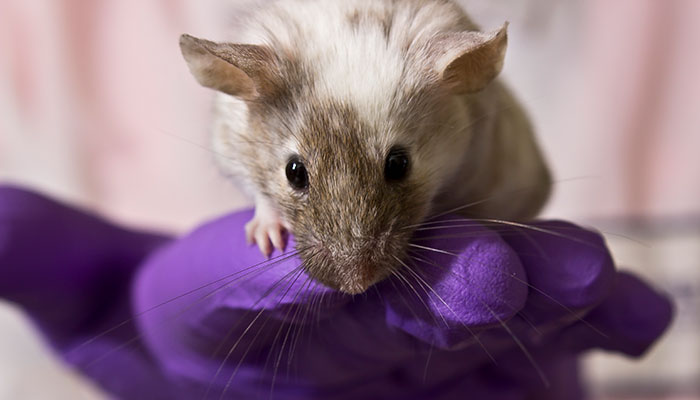NIH Grant to Test How Patients’ Genes Influence Susceptibility or Resistance to COVID-19
Research may also benefit diagnosis, treatment and prevention of other diseases
By Neelanjana Gautam
Kent Lloyd, a professor in the Department of Surgery, School of Medicine, and director of the Mouse Biology Program (MBP), has been awarded a new $500,000 National Institutes of Health (NIH) grant to study the influence of genetic characteristics that might play a role in developing acute COVID-19 and “long COVID” symptoms among patients.
Over the next year, Lloyd and his team will work on unraveling the role of genetic variants in human genes that Lloyd said: “has not been previously studied to great length.” The genetic variants influence how humans respond to viruses such as SARS-CoV-2.
Investigating the Impact of Patient-Specific Genetic Variants on COVID-19 Severity
Until now, genome-wide association studies (GWAS) have demonstrated a statistical relationship, or association, between a patient’s specific genes and the severity of their COVID-19 illness. However, Lloyd said that none have yet looked into whether this effect is causative. Lloyd and team will now seek to understand if specific genetic variants are the reason for a better or worse outcome of the disease.
Since mice and rats don’t naturally get infected by SARS-CoV-2, the researchers will be using COVID-19 mouse models to test the extent of infection and the severity of disease and address the fundamental question of causation versus association.
The team will use the mice that they created through an NIH grant in 2020-2021, and will make further modifications to those genes that are suspected of worse or less severe outcomes. Through the previous award, Lloyd and his team created and used unique polygenic humanized mouse models that express coding sequences for both the human ACE2 and TMPRSS2 genes that are essential for virus infection and transmission.
This project will use CRISPR/Cas9 technology to introduce patient-specific genetic variants into genes suggested by GWAS studies to heighten susceptibility or impart resistance to COVID-19. “The new grant will allow the researchers to take several of these genes and put them into mice, expose them to SARS-CoV-2, and see if that influences the disease susceptibility,” said Lloyd. “It will also help us understand if that confirms the statistical associations seen in GWAS studies.”
The study will be conducted under ABSL3 conditions in collaboration with Lark Coffey, an associate professor in the Department of Pathology, Microbiology and Immunology in the School of Veterinary Medicine, and director of the Davis Arbovirus Research and Training.
Creating Pathways for Precision Medicine
“Confirming the causal effect of patient-specific genetic variants on the severity of COVID-19 will have a profound impact on how we diagnose, treat and prevent this disease,” said Lloyd. “Pre-screening of genetic variants that are known to increase disease severity in patients can guide the kind, approach and timing of various treatments, justify additional preventative strategies and inform follow-up care to mitigate the emergence of long COVID.”
This first-of-a-kind unique UC Davis research will also establish a proof-of-principle for how to use genetically humanized mouse models to confirm causal factors that may influence the course of other potentially infectious, metabolic, cardiovascular and behavioral diseases in individual patients, including monkeypox, polio, diabetes, brain diseases and even cancer.
“It is the epitome of precision medicine,” said Lloyd.
About the UC Davis Mouse Biology Program
The UC Davis Mouse Biology Program, within the Office of Research Instruments and Central Facilities, is a member of the NIH-funded Mutant Mouse Resource and Research Centers. They are an innovator in mouse models and genomic services that advance human and animal health through education, research and discovery.
The network collects and characterizes gene-modified and genetic knockout lab mice and makes them available to researchers worldwide. The NIH recently renewed funding for the UC Davis center, now in its 22nd year, for another five years.
Media Contact
AJ Cheline, UC Davis Office of Research, 530-752-1101, [email protected]
Latest News & Events







